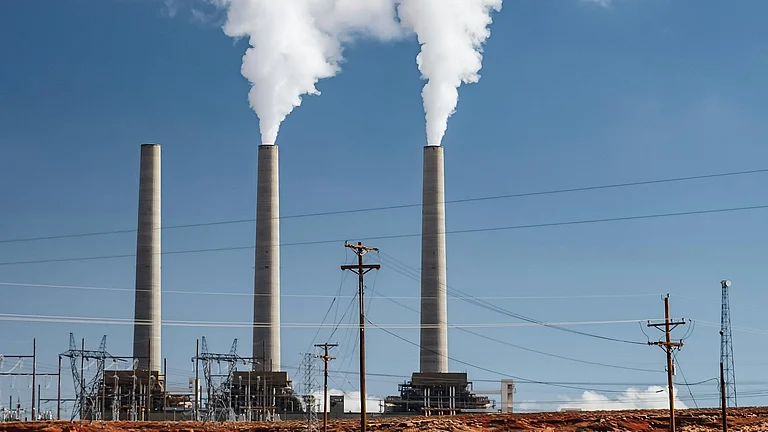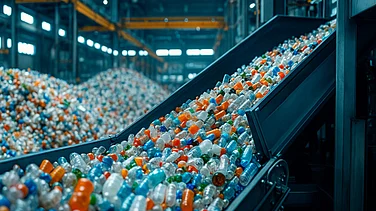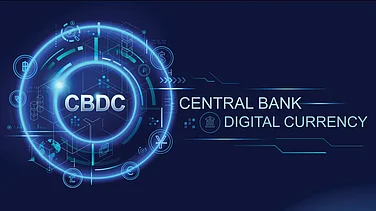Climate change discussions are often clouded by misconceptions and misinformation leading to inaction, inertia and misguided efforts. COP29 has brought some of these missteps into sharp focus, particularly for developing nations by challenging them with hard facts and clear evidence. Such an approach is important for initiating informed action that could reshape our approach to the planet's most pressing crisis.
Myth 1: Substantial Climate Aid is Coming to Developing Countries
Developing nations, including India, have long hoped for significant financial support from developed countries to combat climate change. However, COP29 has dashed such hopes by instead endorsing a meagre aid package in the guise of a New Collective Quantified Goal that promises $300 billion annually by 2035--$1.3 trillion short of what is required. The upshot: developing countries must now largely fend for themselves and draw on domestic research and finance mobilization.
Myth 2: Local Environmental Actions Have Only Local Impact
There's a common belief that actions like planting trees only benefit the immediate environment. The reality is that with the finalisation of Article 6.2 and 6.4 mechanisms at COP29, local environmental actions can now have global economic impact. These articles establish international carbon markets, allowing countries to trade carbon credits globally, potentially reducing the cost of climate action by $250 billion per year.
Myth 3: Climate Change is Just a Natural Cycle
Many dismiss the current changes in our climate as a natural cycle of the earth's long history. While it's true that the planet has undergone climatic shifts before, such as ice ages and warm interglacial periods, the rapid warming seen today is unprecedented in speed and scale. Unlike past changes, which were driven by natural factors like volcanic eruptions and solar fluctuations, today's changes are predominantly fuelled by human activities, notably the burning of fossil fuels and rampant deforestation. This has led to historically high levels of greenhouse gases in our atmosphere, a theory backed by over 97 per cent of climate scientists and major scientific institutions like NASA and the IPCC. The consensus is clear: the current climate crisis is mainly man-made.
Myth 4: A 1.5°C Increase is Insignificant
It's easy to dismiss a global temperature rise of 1.5°C as trivial, especially for those living in already hot climates. However, this seemingly small shift can derail the entire planetary system, causing everything from glacier retreat and sea level rise to the intensification of extreme weather events like hurricanes and heat waves. Even a slight increase in temperature can dramatically accelerate the melting of polar ice caps, pushing up sea levels and threatening coastal communities worldwide. Equally, it could drastically alter agricultural patterns, jeopardise food security, and increase the prevalence of heat-related illnesses.
Myth 5: Climate Change Won't Affect Me
The belief that climate change is someone else's issue is a dangerous fallacy. The reality is that the impacts of climate change are universal and can manifest as more frequent and severe weather events, disrupted food supply chains, economic instability, and increased conflict over dwindling natural resources. No corner of the globe is immune from these effects, making climate change a genuinely global challenge that requires collective action.
Myth 6: My Individual Actions Don't Matter
This myth cripples potential grassroots movements more than any other. While role of government, policy makers and corporates is important, no significant change will happen till the masses are involved. When multiplied by millions, individual efforts can lead to massive environmental benefits. Simple actions such as reducing energy consumption, supporting renewable energy solutions, and opting for sustainable dietary choices can substantially lower one's carbon footprint. When these actions become widespread, they drive policy changes and influence corporate behaviours, leading to more significant systemic shifts toward sustainability.
Myth 7: Sustainability is Expensive
Contrary to the myth that sustainability is just a cost centre, embracing eco-friendly practices can bring significant economic benefits. Energy-efficient technologies and resource-saving measures cut costs, improve operational efficiencies, and attract environmentally conscious consumers. Transitioning to renewable energy sources might require upfront investments. Still, the long-term savings from reduced energy costs and lower climate-related damages far outweigh these initial expenses and have a high return on the initial investment (ROI).
Myth 8: It's Too Late to Act on Climate Change
While it's true that we are already experiencing the effects of climate change, despair should not lead to inaction. It is still possible to mitigate the worst impacts of climate change. Through concerted global efforts to reduce emissions, shift to cleaner energy sources, and enhance energy efficiency, we can still manage to curb global warming and safeguard our future.
The Charge for Action
Debunking these myths is not just about correcting falsehoods but igniting a spark for action. Each one of us holds the power to effect change, and when we act, we inspire others to follow suit. Understanding the actual impacts of our actions and recognising the tangible benefits of addressing climate change can empower societies worldwide to commit to sustainable practices. Let this be the moment we decide to take responsibility, not as isolated individuals but as a united global community ready to tackle this immense challenge. Are you prepared to step up and be part of the solution?
(Tanya Singhal is Founder, Mynzo Carbon and SolarArise. Views expressed are personal.)



























